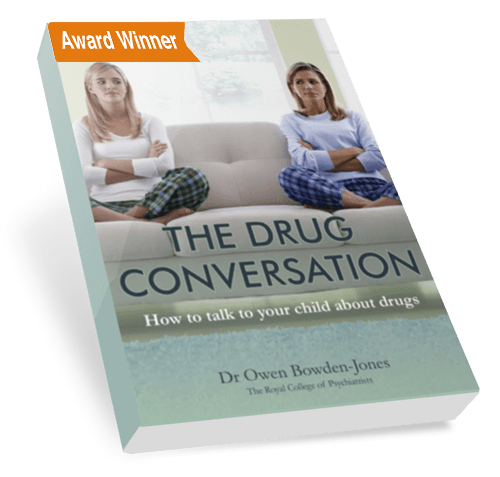the drug conversation
This is a book for parents about how
to raise the thorny issue of drugs
with their teenage children.

This is a book for parents about how
to raise the thorny issue of drugs
with their teenage children.
Drugs have never been more available and your child is almost certain to come across them at some point, often with little idea of the risks. We need to talk with our children about drugs – talking before they come across drugs can help them make better choices – but it’s not always straightforward. This book gives you advice on ways to have this important conversation.
The book will provide parents with clear, up to date, accurate information about ‘psychoactive’ drugs (chemical substances which alter the functioning of the brain, causing changes in the way we think, feel and behave). It gives detailed information to help you understand how drugs work in the brain, what problems they cause and which treatments are most effective. It covers: what drugs are, who uses them and why; how teens use drugs; synthetics (legal highs); plus, how to detect if your child is using drugs and what to do about it
On a practical level, the book contains suggestions on how to have the conversation with your child; making it a conversation, not a lecture. It contains many case studies from the author’s own clinical practice to illustrate different issues, plus examples of actual conversations between parent and teenager.
The chapters are written to stand alone so readers can dip into each one as necessary. If you have particular questions such as ‘How can I drug test my child?’ or ‘I’ve just found drugs in their room, what should I do?’ you can go straight to the relevant section, or you can read the whole book for the full picture. There is a summary of key points at the end of each chapter.
All parents will need this book at some stage. It will help you to feel properly informed about drugs, more confident in talking to your child, more able to avoid drug-related problems developing and better equipped to tackle problems if they do arise.